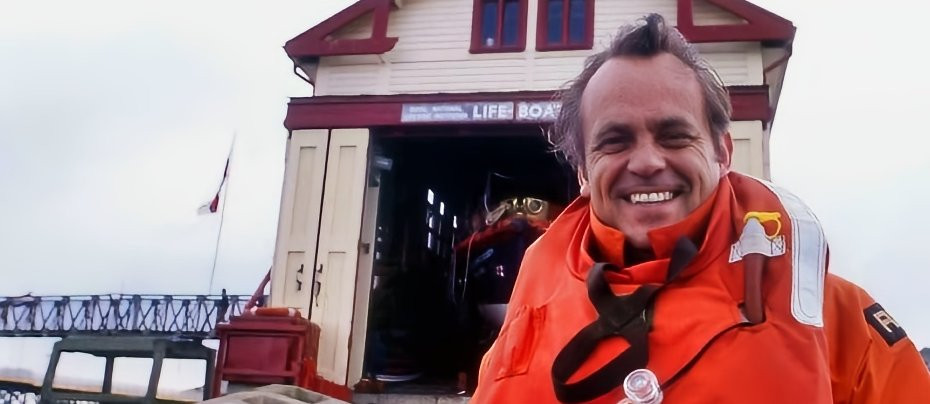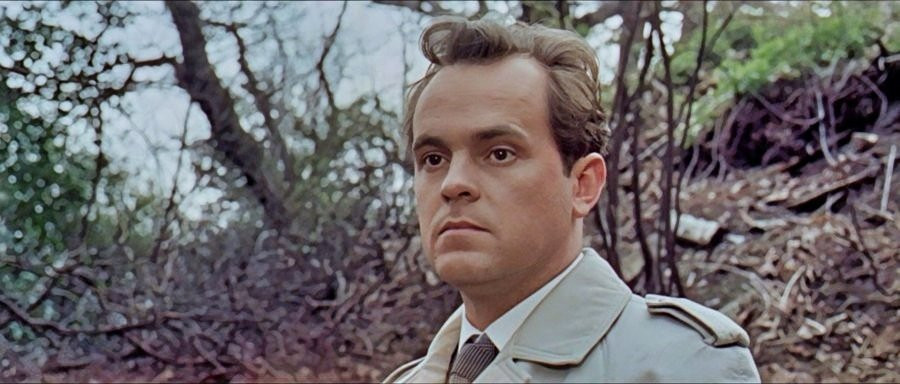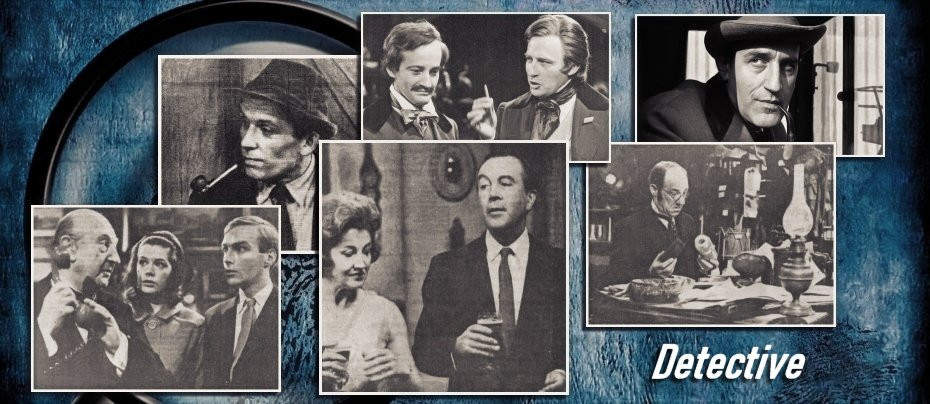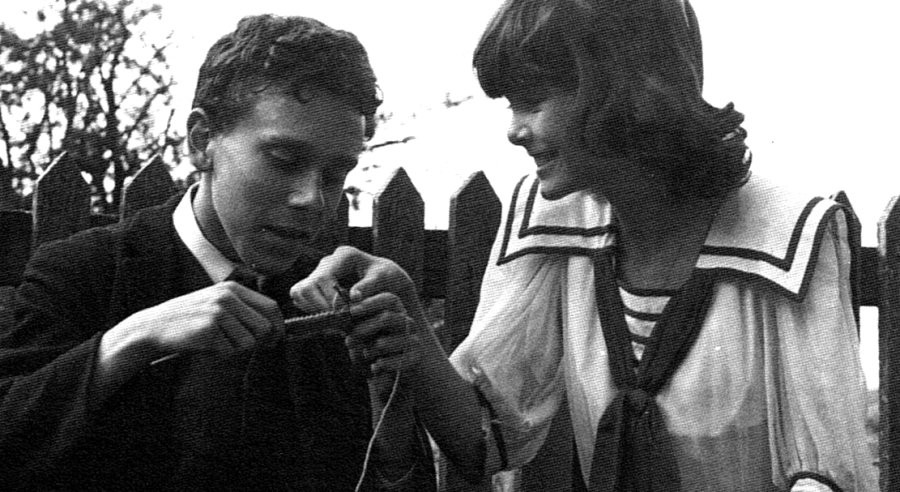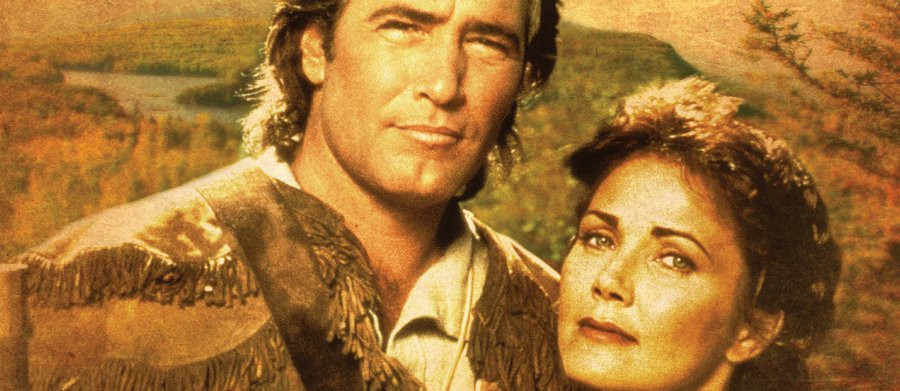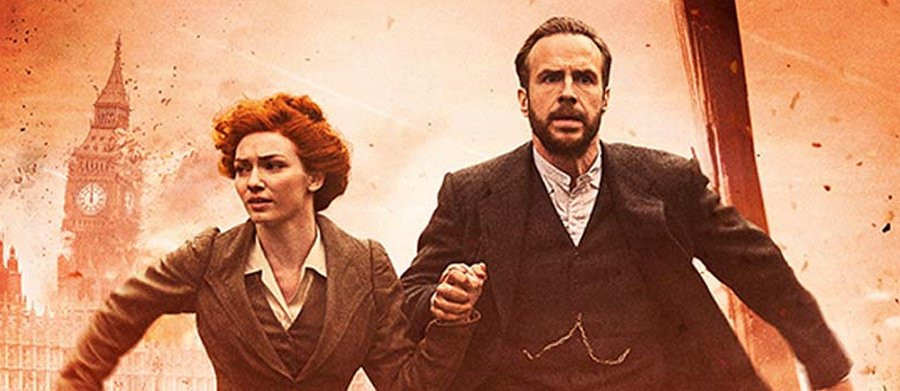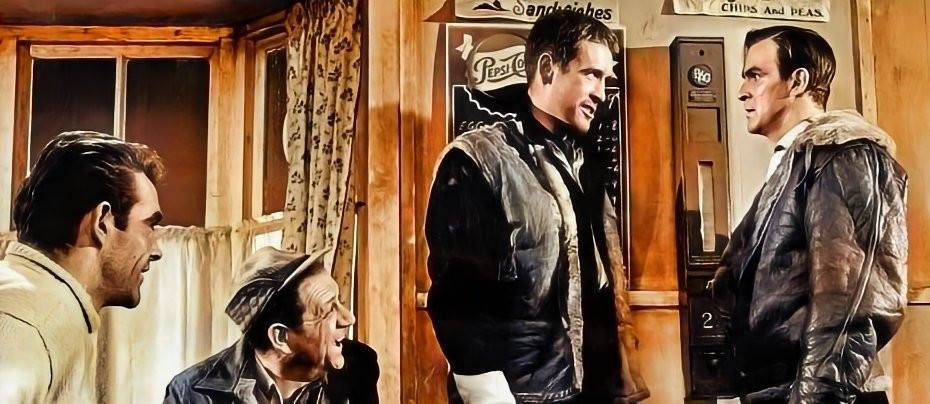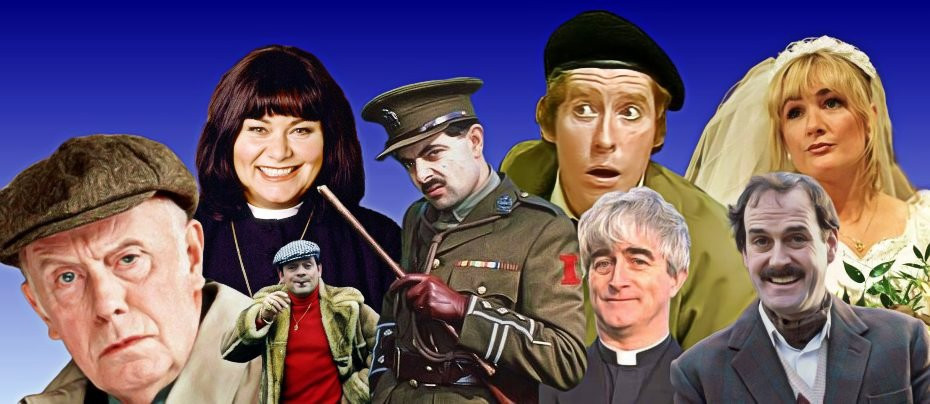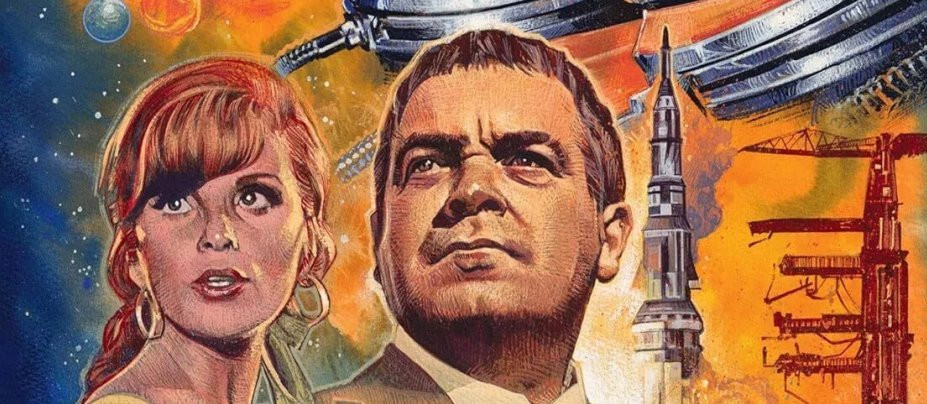
Doppelgänger
Review: Daniel Tessier
A doppelgänger is a German term for a supernatural duplicate, the apparition of a living person whose appearance signifies their coming death. Doppelgänger is the original title of this intriguing science fiction film, the title preferred by its writers, Gerry and Sylvia Anderson. It's by this title that it was released in Europe, while in the US and Australia it is better known as Journey to the Far Side of the Sun. Both titles are evocative, conjuring very different expectations of the story, yet both fit the film very well.
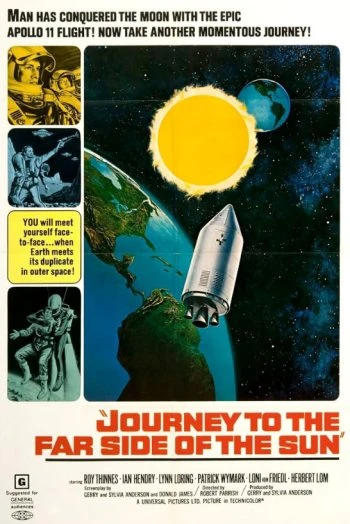
Cannily set in 2069, exactly a century after the film's release, Doppelgänger presents a future clearly extrapolated from the sixties: the Space Race remains in full swing, with East and West fighting for technological dominance. EUROSEC, a unified European space agency operating out of Portugal, has launched a probe which has detected an unknown planet, in an equal and opposing orbit to the Earth, hidden behind the sun. While Europe is unified, at least on paper, it's the United States who have the money, and much of the early drama of the film concerns trying to get the newest manned mission funded before the enemy get there first.
The influence of 2001: A Space Odyssey, released the previous year, is obvious, with a realistic approach to space travel juxtaposed with some psychedelic imagery. The voyage to the new planet takes three weeks; an incredibly fast trip by the standards of contemporary space travel, but still more feasible than the seemingly instantaneous journeys of many such films. The idea of an opposing planet, or Counter-Earth, goes back to antiquity, but had experienced a resurgence in fiction in the 1960s. Sometimes these are entirely alien worlds; more often than not they are true duplicates of the Earth. A crash-landing on the other world leaves it unclear whether the mission even made it, or simply fell back to Earth, until uncanny oddities of this world become apparent. Another clear comparison is The Twilight Zone, with Doppelgänger playing out like a feature-length episode of that classic series of the uncanny.
In 1968, as they are today, the Andersons were best known for their Supermarionation puppet series, including Thunderbirds, Stingray and Captain Scarlet and the Mysterons. Wanting to move away from children's television and into more adult-oriented, live action productions, the Andersons worked on a treatment for a television movie; it was Sylvia who convinced Gerry that the material was good enough for the big screen. An early script by Tony Williamson (The Avengers, Adam Adamant Lives!) utilised Gerry Anderson's central idea of a duplicate Earth, hidden on the other side of the sun in an opposing orbit to our own. The Andersons took this script and reworked it, employing Donald James (The Persuaders, Mission: Impossible) to assist with the rewriting. With a script finalised, the film entered production at Pinewood, with overseas location filming in Albufeira, Portugal.
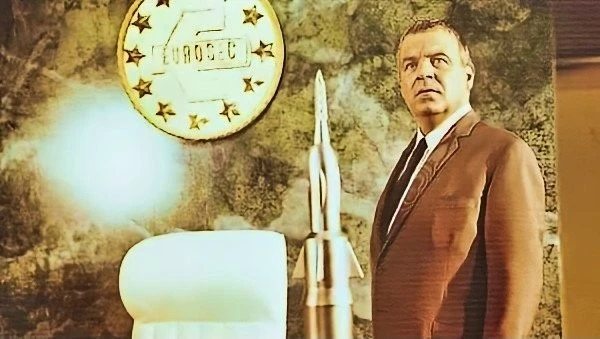
The film begins with the discovery of the new planet, and the data being leaked by a double-agent, complete with a removable camera eye. Herbert Lom (The Ladykillers, Mysterious Island) has a sinister but brief turn as the agent, Dr. Hassler, and to begin with it looks like we're in for a Bond-esque spy drama. Patrick Wymark (The Power Game, Children of the Damned) plays Jason Webb, the beleaguered director of EUROSEC. This could have been a stilted, strait-laced character, but Wymark plays Webb with both gravitas and eccentric flair. He's by far the most entertaining actor in the film. Webb manages to convince NASA to stump up the money for a joint mission, and the time comes to select an astronaut from each agency.
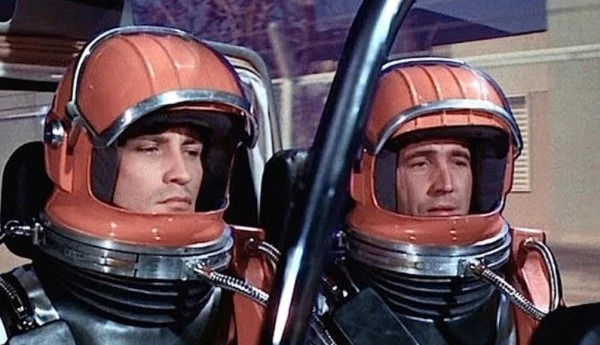
Roy Thinnes, star of General Hospital and The Invaders, plays the all-American astronaut Colonel Glenn Ross, while Ian Hendry (The Informer) portrays the self-deprecating British astrophysicist Dr. John Kane. They make a strong team, and work together to prepare for the arduous voyage. Life on Earth is not without its difficulties though, with Ross experiencing a toxic marriage to his wife Sharon – played by Lynn Loring, his real-life spouse. They would go on to play husband-and-wife characters again a couple of years later in the western Black Noon. While the script tries to inject some adult drama, it never really meshes with the science-based plot. Kane was to share a romance with a EUROSEC agent, Lise Hartman, played by Austrian actress Loni von Friedl, but this was almost entirely cut from the finished film. Sci-fi fans will enjoy appearances by frequent Anderson collaborators Ed Bishop and Keith Alexander, and Doctor Who's Nicholas Courtney.
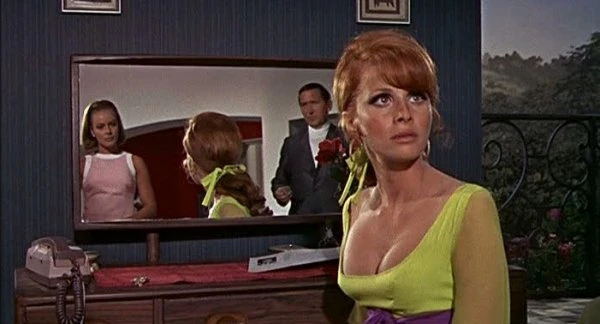
Where the film stands out is in its model sequences, put together by a UK team directed by Derek Meddings, head modelworker on the Supermarionation productions. The primary spacecraft of the film, the Phoenix, is a thing of beauty, with its command module, Dove, existing in both miniature for space sequences and life-size for filming the astronauts. The ships look like a feasible extrapolation from genuine NASA spacecraft and are impeccably realised. The modelwork includes an extensive complex for the EUROSEC headquarters and launch base, populated by various futuristic vehicles. There's a remarkable sense of scale to the sequences, lending a great deal to the realism of the film.
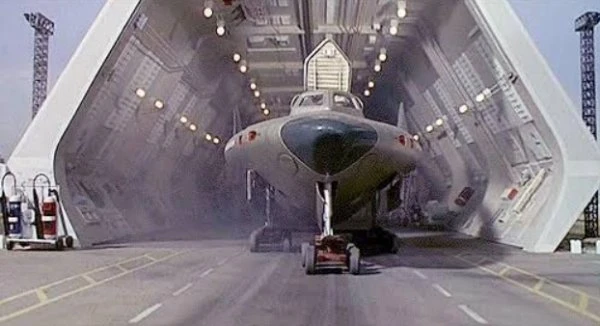
Robert Parrish was the primary director, fresh off his work on Peter Sellers’ vehicles Casino Royale and The Bobo. Unfortunately, his direction is quite pedestrian, which, together with a languidly paced script, means that Doppelgänger lacks drive. The biggest fault is that too much time is spent setting up the premise and the mission, and too little on the mirror Earth once its nature is revealed. There's a suitably unsettling atmosphere to the scenes on the other world, and more could have been made of this. The film progresses to an unexpectedly bleak ending.
Doppelgänger is a slow-paced but intriguing film, enlivened by some of the best space travel sequences of the era. It marks a step between the Andersons' earlier children's fare and their more mature science fiction creations such as Space: 1999 and UFO, the latter of which reused several actors and a number of props from this film.
Published on November 14th, 2024. Written by Daniel Tessier for Television Heaven.


